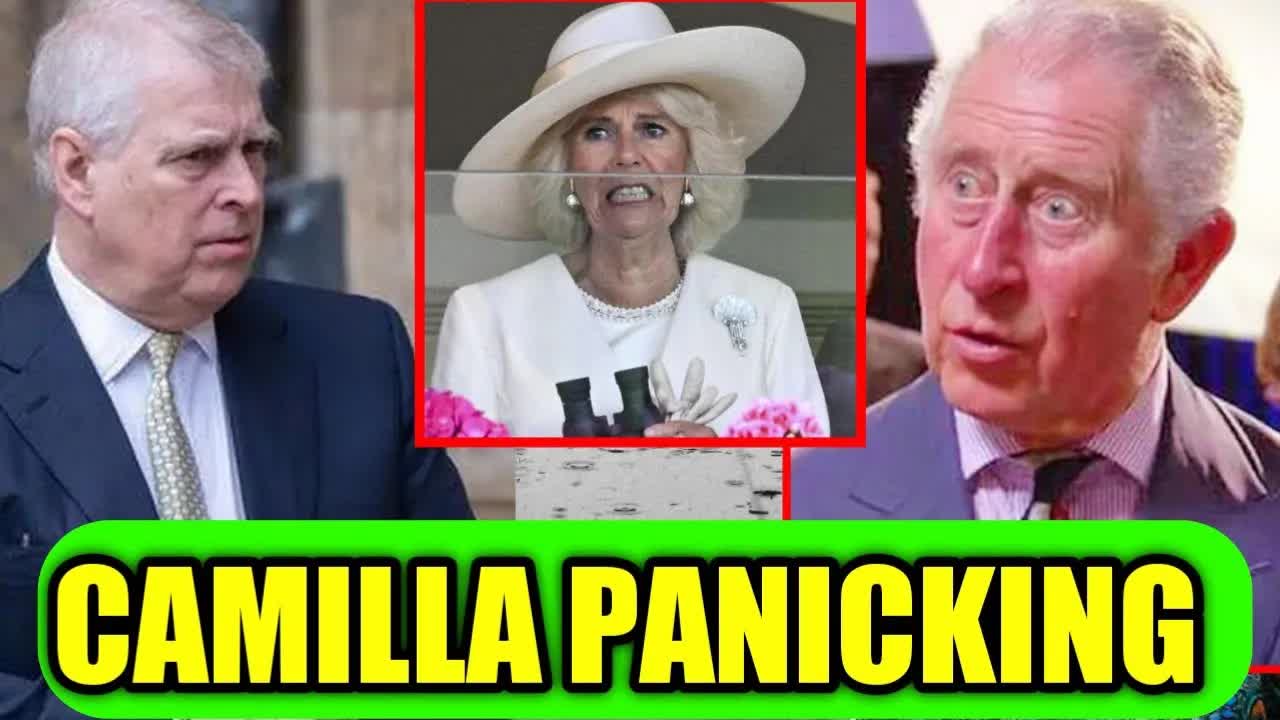A recent security incident at Windsor Castle has stirred up significant conversations among royal commentators and the public, particularly in relation to Prince Andrew‘s ongoing residence at Royal Lodge.
This breach has raised eyebrows about the safety of royal properties, especially given the sensitive nature of Andrew’s situation.
Richard Eaton, a well-known royal commentator from the Daily Mail, weighed in on this topic, suggesting that the security lapse could inadvertently strengthen Andrew’s case to remain at Royal Lodge.
During his appearance on Palace Confidential, he pointed out the lingering questions surrounding the security measures in place.
“This incident could bolster Andrew’s position as he seeks additional help and security,” he remarked, highlighting the growing anxiety over the safety protocols meant to protect royal family members.
The implications of this security breach extend beyond immediate concerns; they underscore the necessity for a robust security framework tailored to royal residences.
With high-profile individuals living within these walls, ensuring their safety is paramount, especially in light of recent vulnerabilities that have come to light.
As for Prince Andrew, his saga at Royal Lodge continues to unfold, reflecting a complicated mix of family dynamics and public perception.
Reports indicate a widening rift between Andrew and his brother, King Charles III, who is reportedly contemplating relocating Andrew away from the estate.
Initially, it seemed that Andrew was on the verge of eviction after King Charles cut off his security funding, a move interpreted as an effort to distance the monarchy from Andrew’s controversial past.
However, in a twist that surprised many, Andrew has managed to secure private financing, allowing him to stay put at Royal Lodge—for now.
This unexpected turn raises intriguing questions about the source of this financial support and the motivations behind it.
Bronte Coy, a journalist closely monitoring the developments, expressed skepticism about the benefactor’s identity and intentions, stating, “They’ve said that the source is legitimate, but I don’t know what that means.
Who is this person and why are they helping?”
Coy’s comments emphasize the uncertainty surrounding Andrew’s situation.
Although he may have momentarily triumphed in his battle to stay at Royal Lodge, the long-term consequences of this arrangement remain uncertain.
“Has he won the war long term?
That depends on who this person is that’s paying,” she mused, suggesting that the identity of the benefactor could significantly influence Andrew’s future with the royal family.
Speculation continues to swirl regarding who might eventually occupy Royal Lodge, even with Andrew’s temporary reprieve.
Royal commentator Gareth Russell noted the estate’s historical significance, having been the last residence of Queen Elizabeth, the Queen Mother.
This history complicates any potential transition, underscoring the estate’s importance within royal lineage and tradition.
Russell mentioned possible candidates for the residence, including the Prince and Princess of Wales or the Duke and Duchess of Edinburgh.
Yet, he pointed out that the current occupants seem content in their Windsor home, leaving the future of Royal Lodge open to various possibilities.
The ongoing discussions about potential new residents reflect the ever-evolving nature of royal accommodations and the shifting dynamics within the royal family.
Amidst these developments, Prince Andrew has found a strong ally in his daughters, Princess Eugenie and Princess Beatrice.
According to a royal insider, the York family is actively strategizing to improve Andrew’s public standing.
They have been holding meetings and formulating a plan to counter negative press surrounding their father.
Beatrice, in particular, has taken a leadership role in this initiative, showcasing her unwavering loyalty to her father during these challenging times.
This united front among the York family highlights the strength of their bonds, even in the face of adversity.
Their collective efforts aim to reshape public perception of Andrew, presenting a cohesive image of support.
The recent security breach at Windsor Castle has not only spotlighted vulnerabilities in royal security but has also influenced the ongoing discussions about Prince Andrew’s future at Royal Lodge.
As the Duke of York navigates his precarious position, the backing of his family and the evolving dynamics within the royal household will play a pivotal role in determining his fate.
The interplay of security concerns, familial loyalty, and royal tradition continues to shape this unfolding story.
With public interest in royal affairs remaining high, the outcomes of these developments will be keenly observed by both supporters and critics alike.
The Royal Family’s ability to manage this situation effectively is crucial, not just for Andrew but for the monarchy’s overall reputation.
As the Royal Family faces intense scrutiny and public expectations, how they handle these challenges will have lasting implications for their standing in the eyes of the public.
The narrative surrounding Prince Andrew and Royal Lodge is merely one chapter in the larger story of the monarchy’s future, highlighting the complexities of contemporary royal life.










